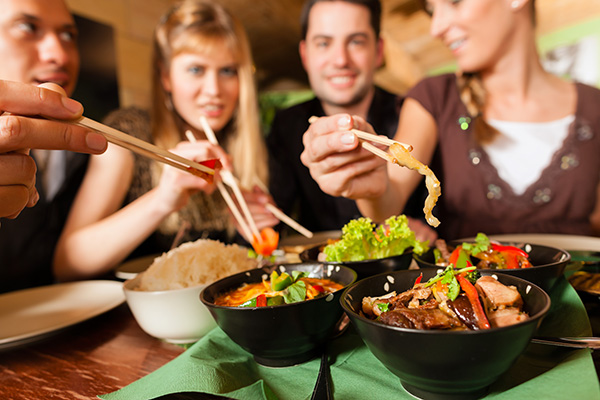The changing language of food culture, from meal assembly to blondies to the verboten nom nom
 Technology is perhaps the greatest catalyst for new words in the dictionary, but gastronomy ranks high as well, recently bringing to Oxford Dictionaries “cake pops,” “blondies,” “pear cider” and the Latin beer drink “michelada.”
Technology is perhaps the greatest catalyst for new words in the dictionary, but gastronomy ranks high as well, recently bringing to Oxford Dictionaries “cake pops,” “blondies,” “pear cider” and the Latin beer drink “michelada.”
It’s all part of people’s burgeoning excitement about food, sometimes communicated wordlessly via images of delicious dishes on Pinterest and Facebook, but often discussed and tweeted and blogged using a whole new set of terms and ideas – a new language of food.
Some examples:
Foodie: Overused to the point of meaninglessness, as discussed in an earlier Hartbeat.
Nom nom: It’s the sound Cookie Monster makes when he’s loving it. Also overused and on Eater.com’s list of banned words, along with foodie, chow, nom and nom nom nom.
Meal assembly: Not a term we often hear much from consumers, but one that describes how they’re putting together meals. Rather than cooking, they’re combining elements such as pasta, pesto and vegetables into a meal that suits their standards for quality.
Scratch cooking: Nostalgic. The way people used to cook at home.
Roadside pantry: Symbol of the new reality that consumers can find food everywhere, including while they’re shopping for furniture (Ikea) and suits (Brooks Brothers in New York). Read more in this Hartbeat on the roadside pantry effect.
Mini-meal: Used by companies for serving sizes between snacks and full meals. Consumers know what it means but do not use it themselves, although that could change – like the use of “continental breakfast,” which was introduced by the hospitality industry but is now widespread.
Local: Actual distance traveled varies, but “local” as a term conveys the idea that ingredients and products were made closer to home than the usual fare. Speaks to consumer desires for a food system with integrity.
The list is almost endless and requires a new way of thinking about not just food – for example, what’s broccolini and where can I find it? – but the cultural underpinnings that reflect a whole new way of relating to food, along the lines of meal assembly and the roadside pantry.
It’s impossible to know how far these changes might go, but it’s not impossible to imagine a time when even our current idea of a meal seems kind of quaint. Just as Ikea recently teased Apple with its ad for a “bookbook,” there may someday be a nostalgic retailer reminding us all what we traditionally ate by calling it a “mealmeal.”
